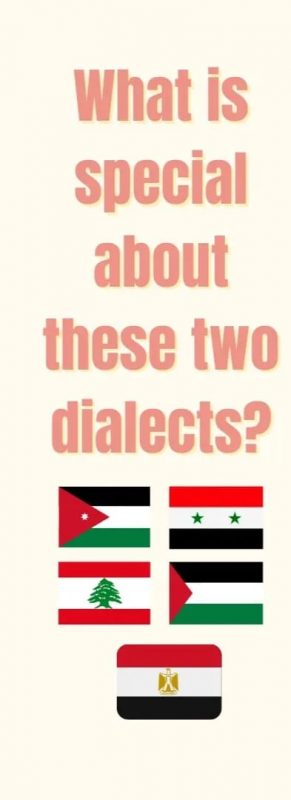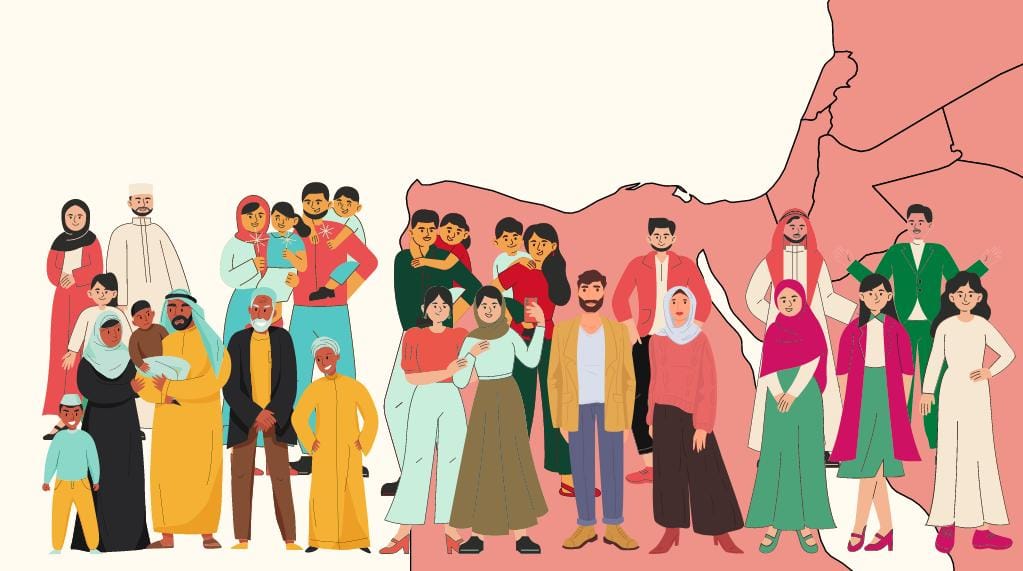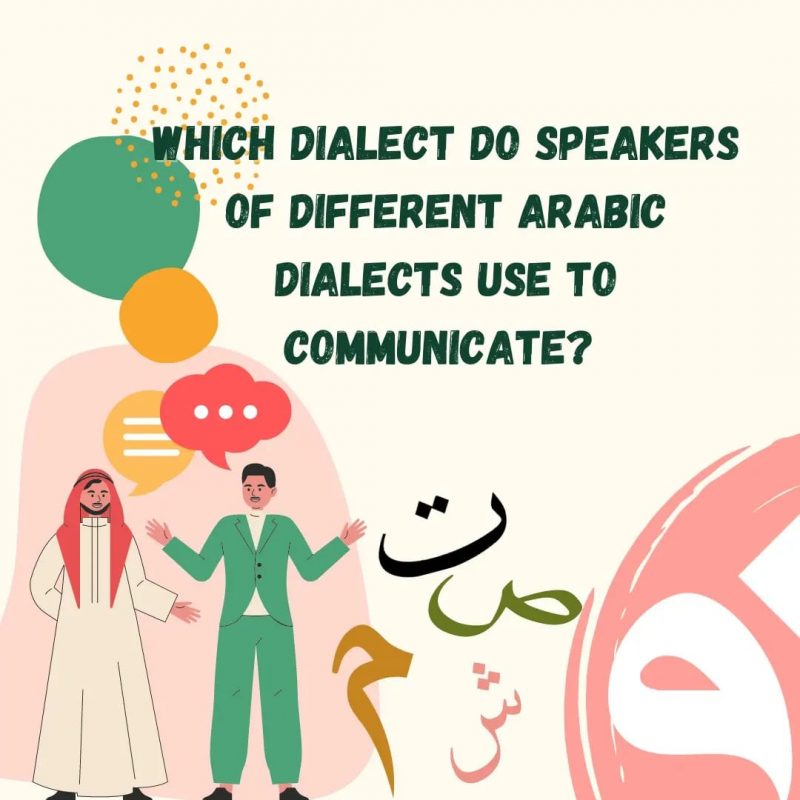It stands to reason saying that there is a linguistic similarity between neighboring Arab dialects which makes it easy for them to communicate fully when each of them speaks their respective dialect. When Syrian, Palestinian, Jordanian, Iraqi, and the Lebanese people meet, each one speaks in their respective dialect and they can all manage a good comprehensible conversation and there is complete understanding among them. Likewise, when the people form the Gulf countries meet and the same applies when the Maghrebians meet each other, or Sudanese and Egyptians together. We can notice that linguistic differences increases as geographic distance between two dialects increases

When an Arab from the Mashriq (East Arab) meets an Arab from the Maghrib (West Arab), neither of them had exposed to the other dialect in his life. He or she might be shocked first by the sound and the rhythm of his or her words, then by the vocabulary that one of them uses, which may be known to the other because it is of Arabic origin, but it is unfamiliar for them because it has been used in different contexts and ways. But after spending a few moments with each other, they will find a way to communicate pretty well; either by getting used to the tone of voice and understanding the meaning in general, which leads to an acceptable sort of communication, or they may resort to a mutually intelligible dialect, usually Egyptian or Levantine.

There are several factors that put the Levantine and the Egyptian dialects at the forefront of the unanimously understood dialects, which the Arabs resort to using in case the dialects differ greatly. The first of these factors is the cultural contact between the Levantines and Egyptians with all Arab countries through work. For many decades, many Egyptians and Levantines worked in the Gulf countries or received education in Iraq, and there met and interacted with many Arab nationalities. This cultural contact made the Arabs open to these two dialects.

The second factor is the spread of Egyptian and Levantine drama and songs throughout the Arab world. The soap operas that Arabs have widely watched since their childhood are either Levantine or Egyptian, which made the Levantine and Egyptian dialect and culture close to the hearts and minds of Arabs. Art is the most important factor in uniting Arab people on certain dialects.
The third factor is: the location of Bilad al-Sham and Egypt, especially Bilad al-Sham, the heart of the Arab world, as the absence of any foreign influence in this dialect made it as far as possible from foreignism and the closest to standard/ classical Arabic and thus easier to understand.
Therefore, we can say that the Levantine or Egyptian dialects are the second dialects of Arabs after their mother dialects.


